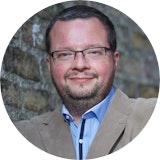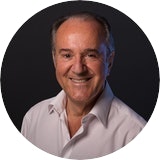Digital Marketing - Study Notes:
Being flexible
Adaptability in the workplace means being flexible, and having the ability to adapt easily to changing work conditions.
To illustrate the concept of adaptability, let’s begin by imagining a soccer team. Every single person on that team has a different role and a different purpose, but with a common aim - which is to put the ball in the back of the goal net as many times as possible. Team members collectively and individually have to make themselves adaptable to every scenario that arises on the playing field. This way of thinking applies not just to soccer players – it applies to you and your work colleagues too.
Today’s work environment is constantly changing. New and unexpected events happen frequently. When something unexpected happens in the workplace, you tend to be judged by peers and management on the actions you have taken to overcome the problem or adapt to the changing situation.
To adapt to new and ever-changing situations, you need to be able to look at problems in different ways and find new solutions you hadn’t considered before. Most of us unconsciously have strong-held beliefs and fixed mindsets which cause us to react negatively to new challenges and to people around us.
Highly adaptable people have an open view of the world. They are, with practice, able to solve problems more easily, enjoy a deeper imagination, and tend to be less affected emotionally by setbacks than others. These people can overcome or adjust their held beliefs and fixed mindsets, and implement new ideas. But this takes a lot of work and persistence.
Becoming adaptable
A recent study published in The European Journal of Social Psychology found that it took on average 66 days (not 21 days, as most people believed) to form a habit, such as eating fruit at lunch, or running for 15 minutes a day. So, it will be a formidable, but workable challenge for you to change your held beliefs and mindset. Luckily, there are actions you can take to help cultivate an adaptable mindset and to challenge your held beliefs.
Make time to complete new, important tasks when they arise
Honestly listen to yourself and what you say or think in response to any new issues that arise. Are you commonly responding, “I don’t have the time” or “I can’t find the time”? We could say that you should simply ‘make the time’, but that is not realistic. It’s better to think with an open mind, and adapt your routine in order to prioritize the available time in your life. Reframe the task and ask yourself how important it is for you to complete it. If you truly need the time, you will find the time. With an open mindset, you can easily reframe arising issues, adapt to new situations, and run with them.
Listen to others
Honestly listen to others and learn how to accept constructive feedback. Your held beliefs and mindset may condition you to react to feedback as if it is a personal criticism. However, an open, adaptive mindset welcomes feedback. As they say, ‘knowledge is power’ and knowledge fuels the ability to take and make decisions. Once you are aware of a situation, then you can decide whether you wish to change your behaviors.
Avoid qualifiers
Avoid using ‘qualifiers’ when discussing the possibility of adapting to a new direction or idea with other stakeholders. Qualifiers exist for nearly every situation. For example, “Don’t take this personally, but...”, “I know what you’re thinking, but...”, or “This might be a bad idea, but...”.
However, if you do have the tendency to overuse them, it may have a detrimental effect on your personal credibility and overall likelihood of adapting and implementing a new idea. Use qualifiers sparingly, as they can often sound condescending or unnecessary.
Back to TopOlivia Kearney
Olivia is CMO of Microsoft Ireland she is responsible for developing the longer term strategy for the Irish business and leads the marketing strategy across B2B and B2C.
A passionate marketing leader who cultivates big ideas to drive growth and brand distinction and brings her international experience in the Tech and FMCG industry.

Cathal Melinn
Cathal Melinn is a well-known Digital Marketing Director, commercial analyst, and eommerce specialist with over 15 years’ experience.
Cathal is a respected international conference speaker, course lecturer, and digital trainer. He specializes in driving complete understanding from students across a number of digital marketing disciplines including: paid and organic search (PPC and SEO), analytics, strategy and planning, social media, reporting, and optimization. Cathal works with digital professionals in over 80 countries and teaches at all levels of experience from beginner to advanced.
Alongside his training and course work, Cathal runs his own digital marketing agency and is considered an analytics and revenue-generating guru - at enterprise level. He has extensive local and international experience working with top B2B and B2C brands across multiple industries.
Over his career, Cathal has worked client-side too, with digital marketing agencies and media owners, for brands including HSBC, Amazon, Apple, Red Bull, Dell, Vodafone, Compare the Market, Aer Lingus, and Expedia.
He can be reached on LinkedIn here.

Kevin Reid
Kevin is a Senior Training Consultant and the Owner of Personal Skills Training and the Owner and Lead Coach of Kevin J Reid Communications Coaching and the Communications Director of The Counsel.
With over twenty years of experience in Irish and International business with an emphasis on business communications training and coaching, he is a much in demand trainer and clients include CEO’s, general managers, sales teams, individuals and entire organisations.
With deep expertise in interpersonal communication through training and coaching and in a nurturing yet challenging environment, Kevin supports teams and individuals through facilitation and theory instruction to empower themselves to achieve their communication objectives. This empowerment results in creativity, confidence building and the generation of a learning culture of continuous self-improvement.

Bill Phillips
Bill is an international facilitator, trainer, and team coach. He has successfully coached CEOs, board members, directors, executive teams, and team leaders in public and private companies, NGOs, and UN organizations in 15 countries across four continents. He is also the creator of Future-basing®, a highly potent process for building strategy, vision, and cooperation.








